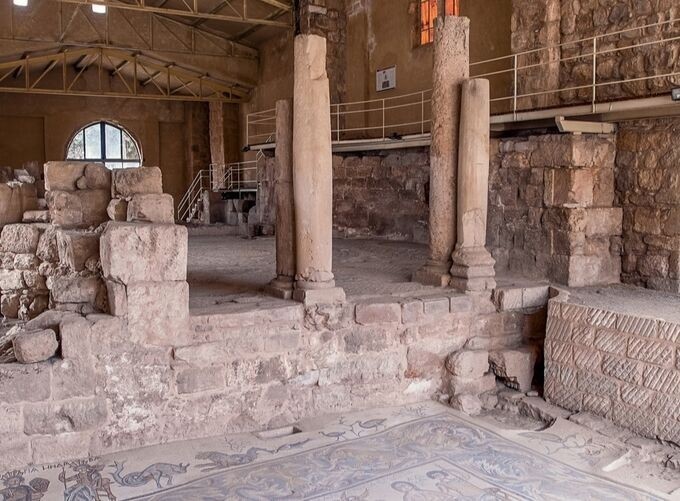
Jordan Time Now Current Local Time Guide
If you’re planning travel, sightseeing tours, vacation packages, or a honeymoon itinerary in Jordan, one of the first questions is “What is the time in Jordan right now?” Understanding Jordan’s time zone is essential for flight planning, airport transfers, tours booking, and coordinating international travel arrangements.
This guide explains everything you need to know about time in Jordan, including time zones, daylight saving adjustments, and tips for travelers booking group tours or private tours, ensuring your vacation in Jordan goes smoothly.
What Time Is It in Jordan?
Jordan operates on Eastern European Time (EET), which is UTC +2 hours for most of the year. This means Jordan is 2 hours ahead of Coordinated Universal Time (UTC).
When you’re booking flights, arranging tours, or setting up pickups for sightseeing or honeymoon travel, using the correct time reference helps avoid confusion.
Does Jordan Use Daylight Saving Time?
Yes — Jordan implements Daylight Saving Time (DST) in certain months, during which the clock moves forward by one hour to UTC +3 hours.
Daylight saving typically begins in spring and ends in autumn, though dates can vary slightly. During DST, you’ll notice later sunsets and more daylight for excursions, making it a great time for outdoor tours.
Jordan Travel deals & itineraries often take this into account, especially seasonal vacation packages that combine Petra, Wadi Rum, and the Dead Sea sightseeing.
Why Knowing the Time in Jordan Matters for Travelers
Flight & Airport Transfers
When arranging travel arrangements, knowing the current local time helps you avoid missed flights or early pickups.
Group Tours & Private Tours
Guides rely on local time schedules for historic site visits, desert safaris, museum entries, and sunset tours — especially in busy cities like Amman or Aqaba.
Tour Booking & Travel Deals
Many tours booking services list activity times in local time, so understanding Jordan time ensures you arrive on schedule.
Communication
Knowing the time helps when contacting hotels, Jordan travel agencies, or local operators while planning your holiday.
Time Differences With Major Cities
Understanding time differences can help you coordinate international travel and communication.
- London (GMT/UTC +0): Jordan is typically +2 hours
- New York (EST/UTC −5): Jordan is +7 hours
- Dubai (GST/UTC +4): Jordan is −2 hours
- Sydney (AEDT/UTC +10): Jordan is −8 hours
These differences are especially important when booking international flights, connecting with tour operators, or scheduling calls with travel agents to confirm itineraries.
How to Check Jordan’s Time Right Now
Smartphone & Laptop
Most devices automatically update the local time when you arrive in Jordan. Just ensure location services are enabled.
World Clock Apps
Apps like Google Clock, Apple World Clock, or travel tools like TripIt show real-time local time across destinations.
Airport Screens
Arrival terminals at Queen Alia International Airport display local time, helping you sync your watch right away.
Local SIM Card
If you purchase a local SIM card upon arrival, your device time will update automatically based on the Jordan network.
Time and Your Travel Itinerary
Jordan is rich in attractions — from Petra to Jerash, the Dead Sea to Wadi Rum — so planning your day around accurate local time enhances every experience.
Sunrise & Sunset Tours
The time of sunrise and sunset determines the best hours for photography, walking tours, and desert excursions.
Museum Hours
Popular museums and archaeological sites have set opening hours. Knowing local time prevents disappointment and maximizes sightseeing.
Desert Camps & Night Tours
Activities like stargazing tours in Wadi Rum or nighttime desert dinners are scheduled based on nightfall, so local time is crucial.
Tips for Travelers on Time Management
Sync Your Devices Before Departure
Set your phone’s time zone to Jordan (UTC +2/+3) to adjust automatically and avoid jet lag confusion.
Allow Extra Time for Transfers
When traveling between cities like Amman, Petra, and the Dead Sea, leave buffer time between departure and arrival.
Book Early Morning Sightseeing
If you’re traveling in summer or winter, early tours help you avoid midday heat and catch beautiful morning light.
Use Local Tour Operators
Local professionals understand seasonal time changes and can plan your day accordingly, especially for honeymoon or family tours in Jordan.
Why Time Matters for Travel Deals & Booking
Travel deals often list discounts based on season and time of travel. For example:
- Early-bird discounts for tours booked months in advance
- Last-minute deals tied to available departure dates
- Seasonal promotions reflecting off-peak hours or daylight saving season
Being aware of Jordan’s local time helps you book the best tours and travel packages and take advantage of lower prices.
Jordan Time for Every Type of Traveler
Sightseeing Travelers
Accurate local time ensures you don’t miss temple entries, performances, and operating hours.
Honeymoon Travelers
Enjoy sunset views in Wadi Rum or romantic dinners at the Dead Sea by planning around local sunset times.
Group Tours
Meeting times are crucial; group tours run on fixed schedules synced to local time.
Private Tours
Private tours offer flexibility, but guides still operate based on local time to maximize your itinerary.
Final Thoughts
Knowing what the time in Jordan right now isn’t just about checking your watch — it’s a travel necessity. From flight planning and airport pickups to tours booking and daily sightseeing, local time plays a vital role in travel arrangements.
Whether you choose private tours, group tours, or customized vacation packages, syncing your schedule with Jordan’s current time enhances every part of your journey — making your trip, honeymoon, or family holiday both seamless and memorable.

FAQs About Jordan Time
- What time zone is Jordan in?
Jordan uses Eastern European Time (UTC +2) most of the year, shifting to UTC +3 during daylight saving for longer daylight hours and comfortable sightseeing. - Does Jordan observe daylight saving time?
Yes, Jordan applies daylight saving usually from spring to autumn, moving clocks forward one hour, which affects tour times and travel schedules. - How do I check the current time in Jordan?
Use your phone’s world clock, local SIM network, world clock apps, or airport displays to check Jordan’s current time upon arrival. - Why is knowing Jordan time important for travel?
Local time prevents missed tours, ensures timely sightseeing entries, manages airport transfers, and aligns with tours booking and guided activities. - Is Jordan time different from nearby countries?
Yes, time differences vary. For example, Dubai is two hours ahead of Jordan, while London is two hours behind most of the year.



